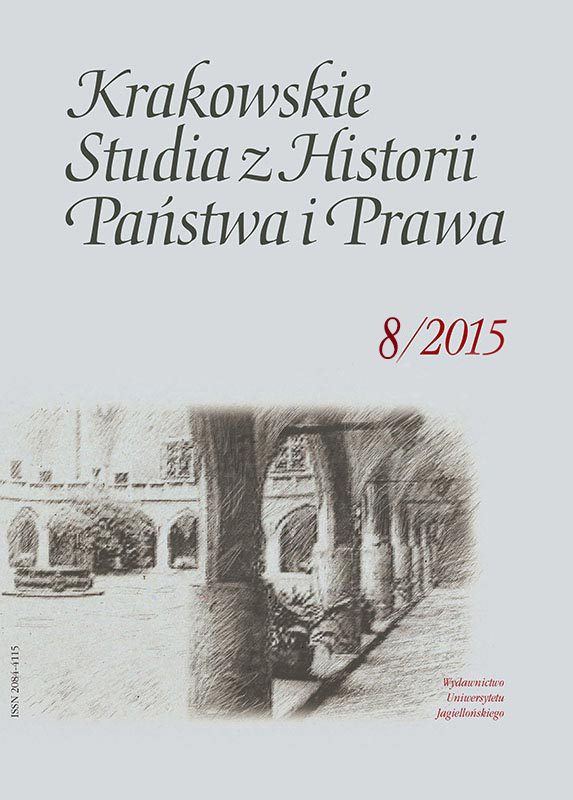Warszawa jako ośrodek polskiej nauki prawa w dobie zaborów
Warsaw as a Center of Polish Science of Law in the Era of the Partitions
Author(s): Wojciech WitkowskiSubject(s): Law, Constitution, Jurisprudence, History of Law
Published by: Wydawnictwo Uniwersytetu Jagiellońskiego
Keywords: Warsaw; science of law; The Duchy of Warsaw; the Polish Kingdom; higher schools; law society
Summary/Abstract: The objective of the paper is to present comprehensively, but also in a specific way, the Warsaw society dealing with the science of law during partitions i.e. the Duchy of Warsaw and the Polish Kingdom (in the years 1807–1915). Within these years Warsaw was developing dynamically and became a modern, capitalistic city, and as a result of that the social and economic changes considerably influenced legal alterations both in the sphere of public and private law. The paper sets forth three main issues.First, it shows the scholarly activities of Warsaw lawyers associated with two higher schools: the Warsaw University in the years 1808–1831, and the Law and Administration Faculty of the Warsaw School in the years 1862–1869. Beyond this, the paper presents some of the scientific achievements of lawyers who were active independently of the higher schools which were closed down for political reasons, and when legal publications could be printed mainly in scientific newspapers.Secondly, the paper deals with the problem of the law defining court procedures differently from that of the Russian Empire, especially in civil law where the differences between the French and Polish systems remained until the end of the presented period. This difference considerably influenced the scientific works of the Warsaw society, distinguishing it from the legal societies in the territories of the other partitions.Thirdly, the scientific achievements of four subsequent generations of lawyers are analyzed in broader perspective. Profiles of scholars, their views, and associations with different schools of thought in the first generation of 1808–1831 are presented, followed by the second generation, which was active in the period between the November and January Uprisings. Among those lawyers there were supporters of both natural law and of the historical school, but with time there were more and more of those who subscribed to the dogmatic method and the French school of exegesis. The third and fourth generations, active in the 1860s, were associated first with the Law and Administration Faculty of the Warsaw School, and then with the newspaper – “Gazeta Sądowa Warszawska.” This age was characterized by legal positivism, but also by the still extant historical school. Generally speaking, the works of Warsaw lawyers were varied and miscellaneous, and on an equivalent level with European counterparts, but national in their character.
Journal: Krakowskie Studia z Historii Państwa i Prawa
- Issue Year: 8/2015
- Issue No: 1
- Page Range: 41-55
- Page Count: 14
- Language: Polish

